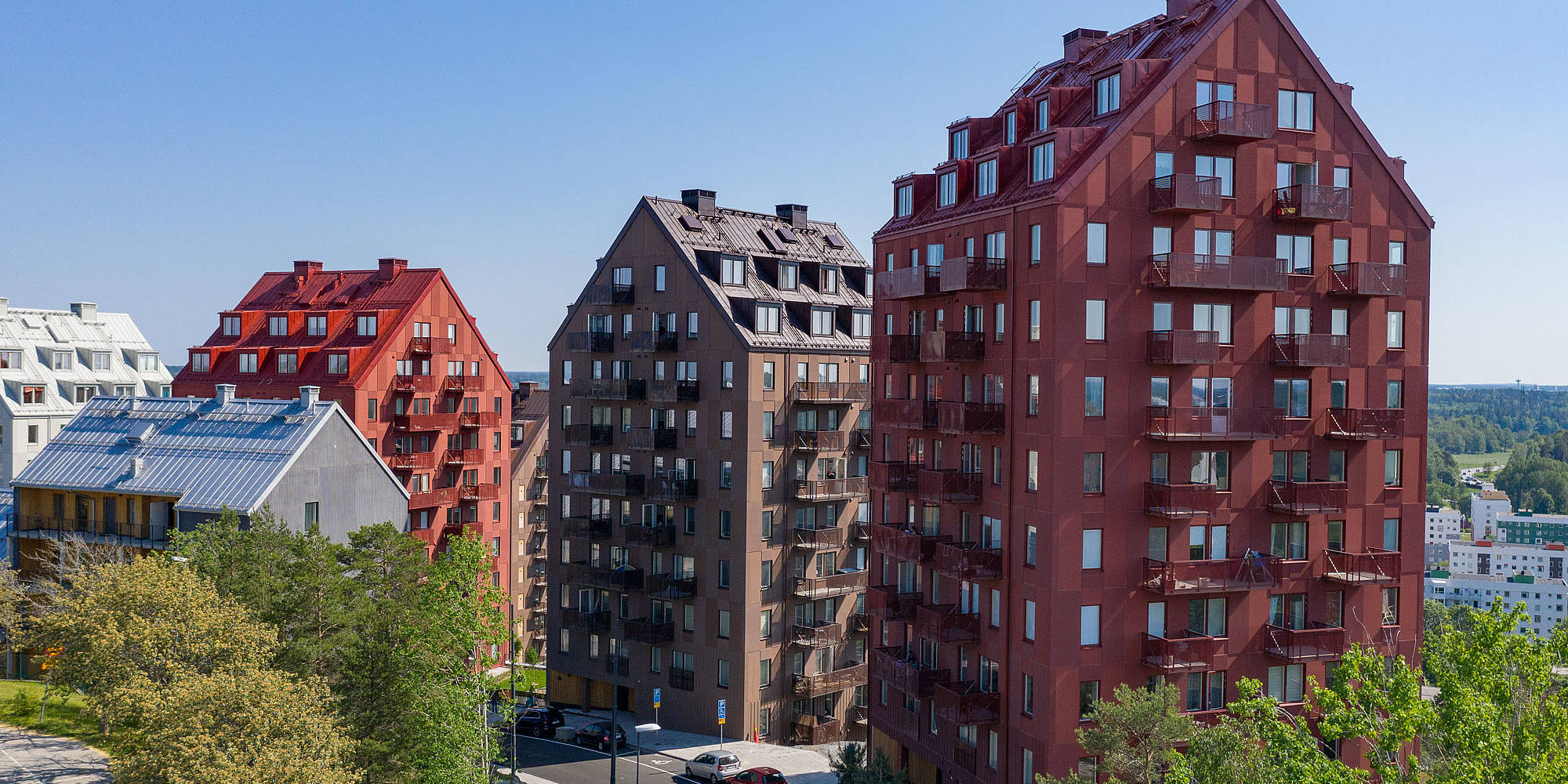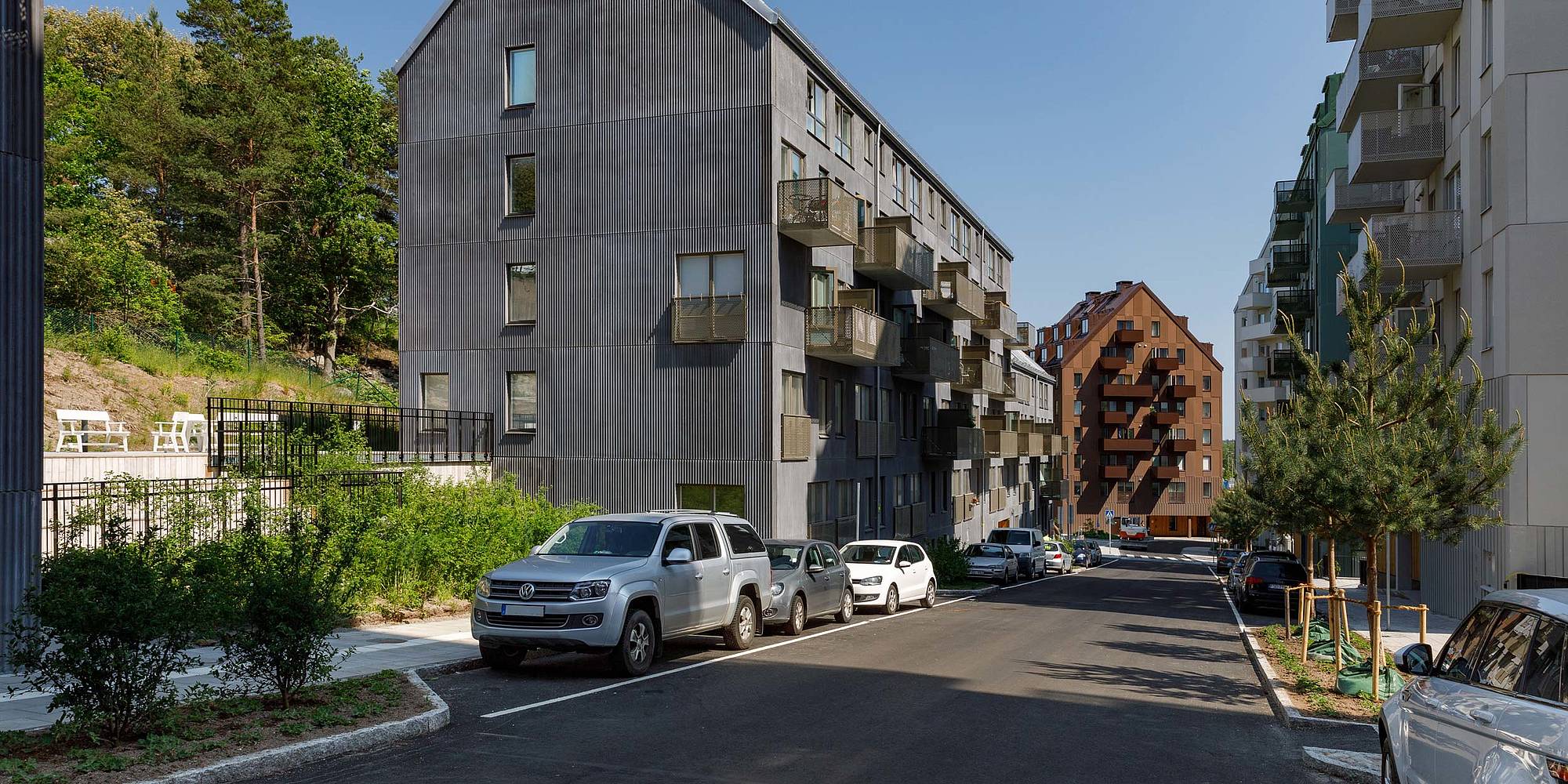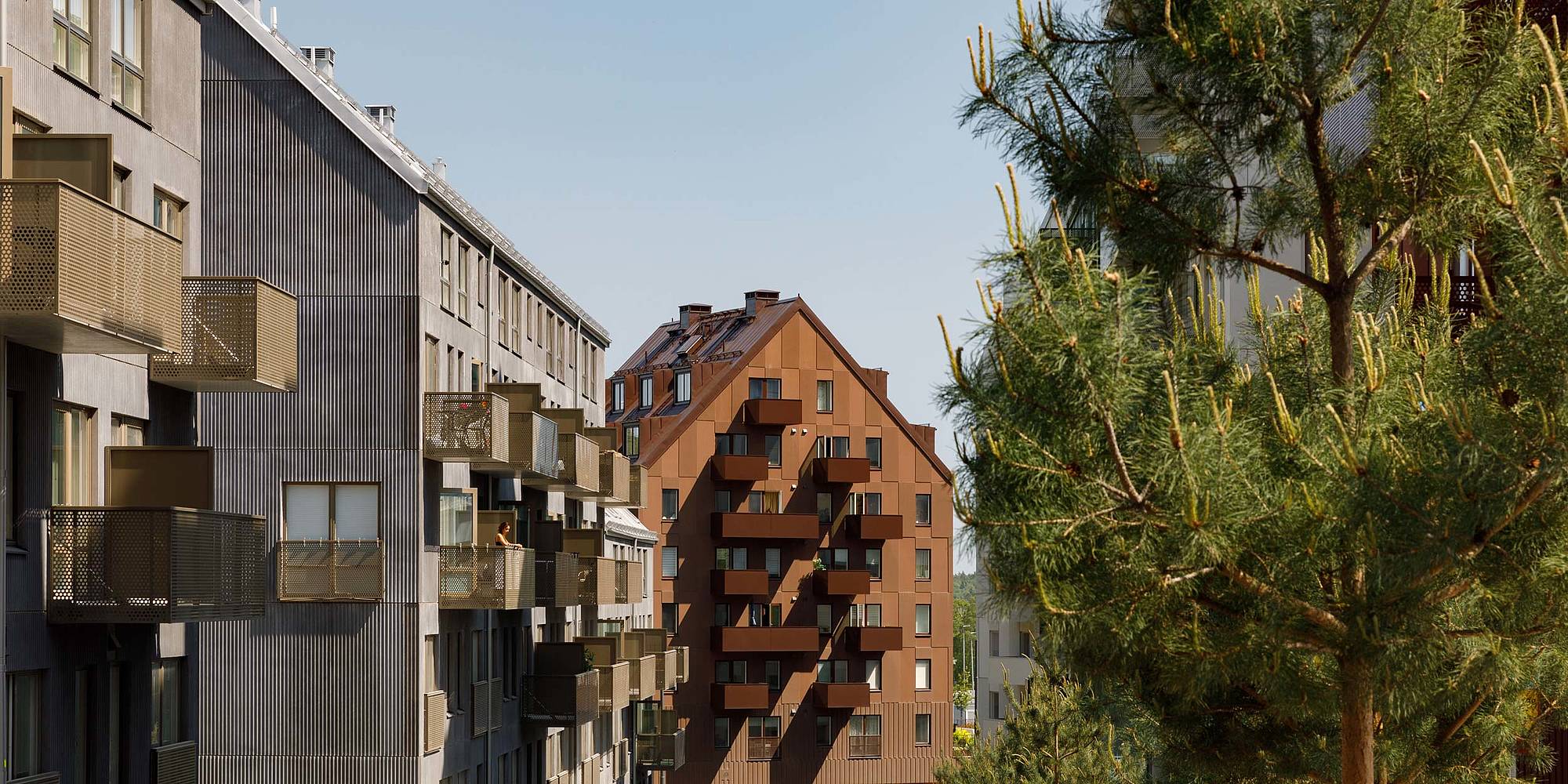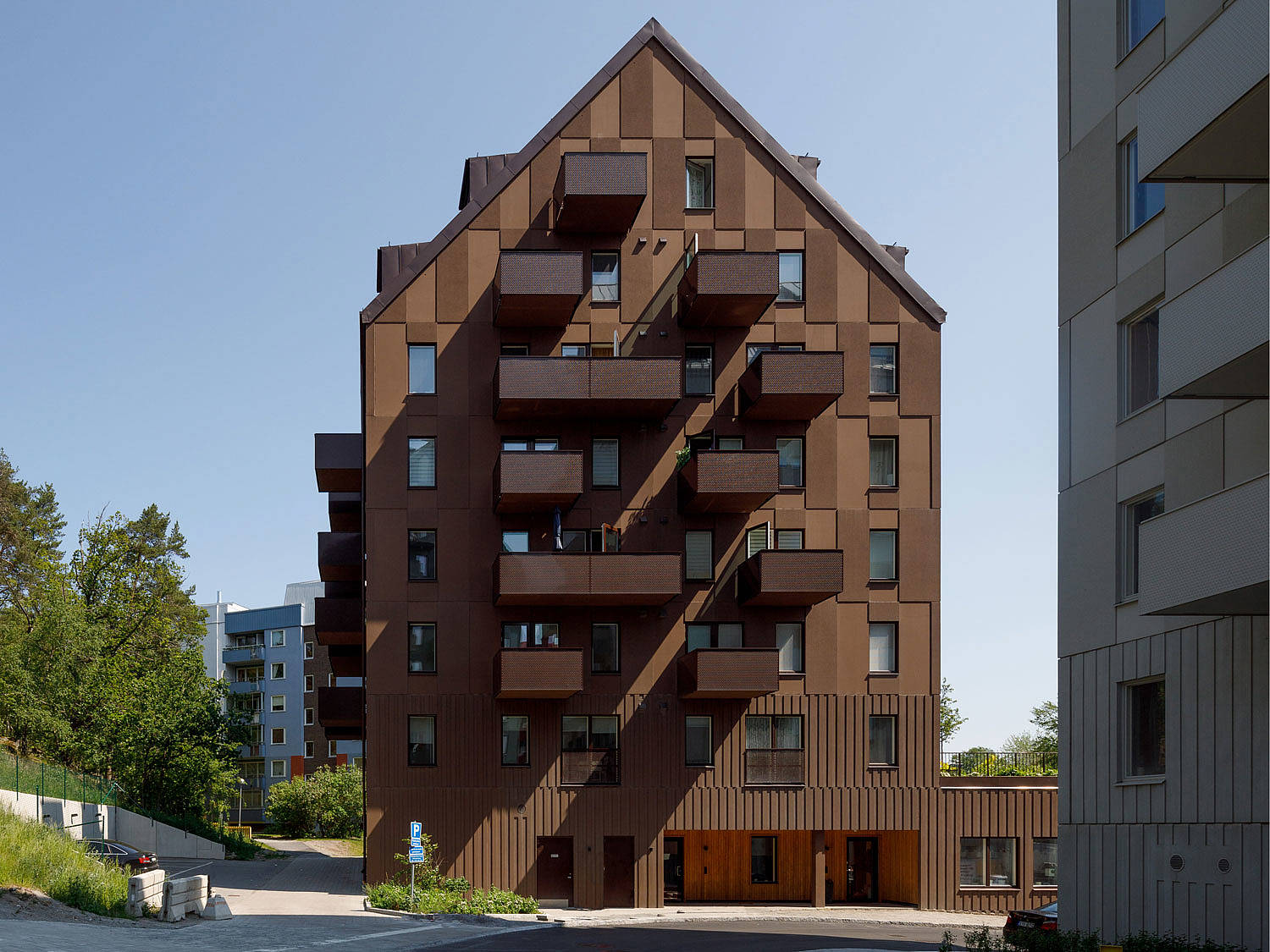Tingstorget, Stockholm, Sweden
South of Stockholm, residential blocks are rising with a uniquely Swedish look. The buildings’ colors and shapes are revitalizing the surrounding area - and the façade is doing its part too.
On a hillside plot in the Swedish village of Alby, just under 30 minutes away from Stockholm, 16 multistory residential buildings have been being constructed under the aegis of Swedish project developer Titania since 2014. The 670 homes under the “Tingstorget” project should be completed by the end of 2019 according to plans drawn out by Arkitema. Tingstorget is intended to revitalize the community just outside the Swedish capital, creating new living space and meeting places while satisfying the demand for housing.
“Future Alby” is the name of this vision for the region. The plot boasts residential buildings, a public square, a meeting place for activities, places to garden and play, and a metro station. Instead of typical apartment blocks, the planners designed multistory buildings with pitched roofs as you would expect to see on single-family homes. “The pitched roofs lead to architecturally interesting rooftop profiles that reject the status quo and introduce a new type of building to Alby,” say the architects.
Alongside the six to ten-story apartment buildings, three-story townhouses are also being constructed. The latter come with private gardens, while the apartment blocks have balconies and share green courtyards. The buildings are spread across different heights of the sloped plot at 90 degrees to one another, creating exciting relationships between the constructions. The residents benefit from views and plenty of light.



Pitched roofs with gables and dormers give the apartment buildings a house-like charm, making them less dominant. Various colors underline the architects’ wish to reinforce and enrich the character of the landscape. Balconies, roofs and windows feature the same colors as the façades.
The project is using prefabricated construction methods. The Swedish precast factory Benders is responsible for producing the prefabricated concrete elements. Elastic textured formliners from RECKLI are used to produce the façade elements, to create the individually textured concrete surfaces according to the architects’ plans. When used in turn with smooth concrete surfaces, they create interest on the façade.
RECKLI delivered eleven formliners to Benders to produce the textured concrete elements. Each can be used 50 times. The architects chose the texture Sinus, whose wave texture brings the façade to life with an interplay of light and shadow. RECKLI also delivered four canisters of separating wax to the prefab plant. The formliners are sprayed with the separating wax before the concrete can be poured. The separating wax guarantees that the elastic formliners can be easily removed from the concrete. This prevents breakages around the edges and damage to smaller concrete elements.
The colorful, almost playful character of the façades gives the project an unmistakable character that will define Alby and the surrounding area for a long time to come.
